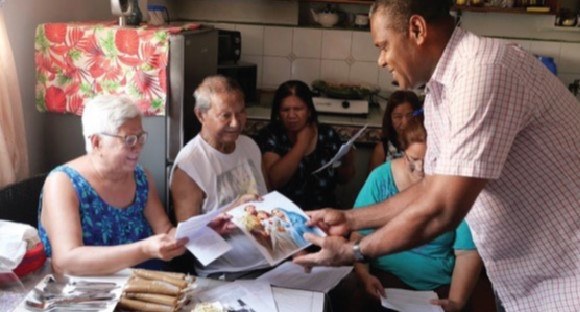Stewardship through Gratitude

I believe that the world is desperately in need of genuine stewards, especially within our familiesand communities. As Columbans, we are called to take care, protect, manage and use wisely everything that has been handed to us by our generous and loving benefactors. This involves maintaining, protecting, and beautifying His creations. Some practical examples of being good stewards are: using biodegradable products, recycling, and using all our resources (house,furniture, vehicles, sports equipment, electronic devices and the food) with great care.
I also believe that a grateful heart is necessary to be good and genuine stewards. Gratitude is a readiness to show appreciation for something or someone and the initiative to return kindness. In positive psychology research, gratitude is strongly and consistently associated with greater happiness. It invokes positive emotions, relish good experiences, improves health, deals with adversity, and builds strong relationships.
Gratitude is different from thankfulness. Thankfulness is an emotion whereas, gratitude is an attitude of appreciation under any circumstance. Gratitude involves being thankful, but it is more than that. It is also being appreciative of life daily even when nothing exciting happens.
In reflecting upon today’s readings, especially the Gospel (Mt. 18: 21- 35), I was drawn towards the unforgiving servant, who failed to forgive his fellow servant. He was forgiven of his great debt but he chose not to forgive his fellow servant. What was going on in his mind or heart? I believe that he thought he was entitled to the forgiveness of the king while his fellow servant was not. Similarly, God is our king and through Jesus Christ, his Son, God has forgiven our debts of sin, even when we do not deserve it.
Despite my years in formation, I realized that we can never say that we deserve to be serving God as priests or seminarians because grace always precedes us. During his general audience on the 30th of December 2020, Pope Francis reflected on the importance of gratitude in prayer. The healing of the ten lepers by Jesus is an example. This episode, the Pope said, “Divide the world in two: those who do not give thanks and those who do; those who take everything as if it is owed them, and those who welcome everything as a gift, as grace.” The Catechism says, “Every event and need can become an offering of thanksgiving.” Hence, the Pope said, the prayer of thanksgiving always begins with recognizing that “grace precedes us”. “We were thought of before we learned how to think; we were loved before we learned how to love; we were desired before our hearts conceived a desire.” “If we view life like this,” he pointed out, “then ‘thank you’ becomes the driving force of our day.”
Woven throughout Laudato Si’ is the theme of stewardship—the obligation to care for all that has been given out of love and respect for the Creator who gave it, and love and respect for those with whom it is to be shared

Iowane presenting a gift to a couple he regularly visits
